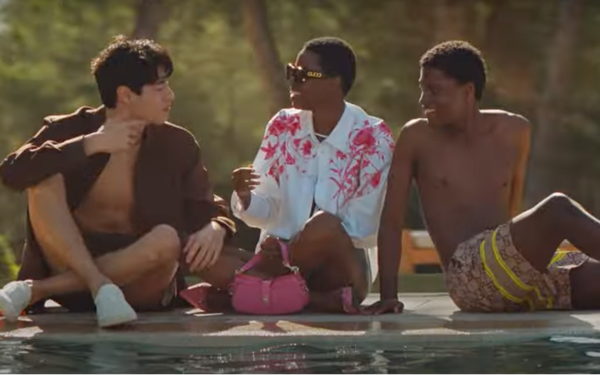luxury
Gucci Is The Latest In Luxury Slowdown
- by Sarah Mahoney @mahoney_sarah, April 25, 2024

Gucci sales dropped 21% in the most recent quarter, leading parent company Kering to forecast a 45% drop in profits in the year's first half. While some of the company’s woes are unique to the Gucci brand, with clothing and accessories from its new designer still underperforming, the results also reflect a range of muted expectations plaguing luxury brands everywhere.
LVMH, owner of Louis Vuitton and Tiffany, reported 3% gains but noted declines in wines, spirits, jewelry and watches.
Gucci isn’t Kering’s only problem, with overall sales declining 11% to about $4.8 billion. “Kering’s performance worsened considerably in the first quarter,” says François-Henri Pinault, chairman and chief executive officer, in its report. “While we had anticipated a challenging start to the year, sluggish market conditions, notably in China, and the strategic repositioning of certain of our Houses, starting with Gucci, exacerbated downward pressures on our topline.”
advertisement
advertisement
Last year, Kering replaced Alessandro Michele, Gucci’s long-time star creative director, with Sabato de Sarno. Sales dropped 21% to $2.2 billion.
And while Gucci’s drop was the largest, sales also fell 8% to $791 million at Yves Saint Laurent, 2% to $415 million at Bottega Veneta, and 7% to $881 million at Kering’s other houses, including Balenciaga, Alexander McQueen, Brioni and jewelry houses.
Sales of eyewear gained 8%.
While LVMH had a more solid first quarter, with revenues climbing 3% to $22.2 billion, those results are slightly below Wall Street expectations and reveal plenty of soft spots. Fashion and leather goods, which make up nearly half the company’s revenues, rose 2% to $11.2 billion. While positive, that marks a notable deceleration from the prior quarter, when sales in that division gained 9%.
“Bigger picture, we remain guarded on the luxury/accessories backdrop in 2024,” notes Mark Altschwager, an analyst with Baird, in a note on the earnings. (Baird does not cover LVMH.) In the broader luxury category, he sees “less spending power among U.S. aspirational consumers and risks in China (growth more dependent on brand-specific momentum/execution).”
Sales in LVMH’s selective retailing division, which includes Sephora, jumped 11% to $4.4 billion.
However, sales of wine and spirits fell 12%, as demand fell for Hennessy cognac, and champagne sales declined. The company says this marks a return to normal after a COVID surge.
Sales of watches and jewelry, which includes Tiffany, Bulgari and Chaumet, dropped 2%.
Like Kering, LVMH earnings came with a serving of caution. “In an uncertain geopolitical and economic environment, LVMH remains both vigilant and confident at the start of the year,” the company says in the report. “The Group will continue to pursue its strategy focused on developing its brands, driven by a sustained policy of innovation and investment.”




